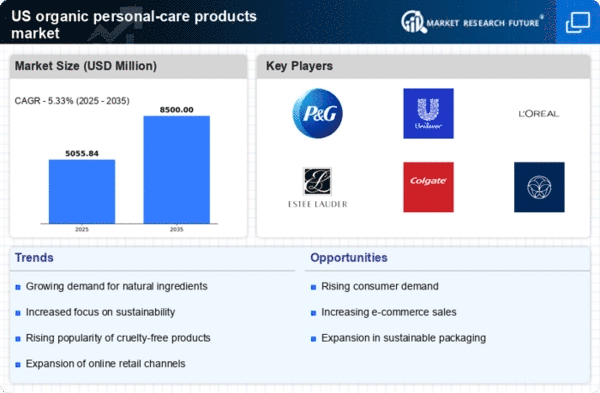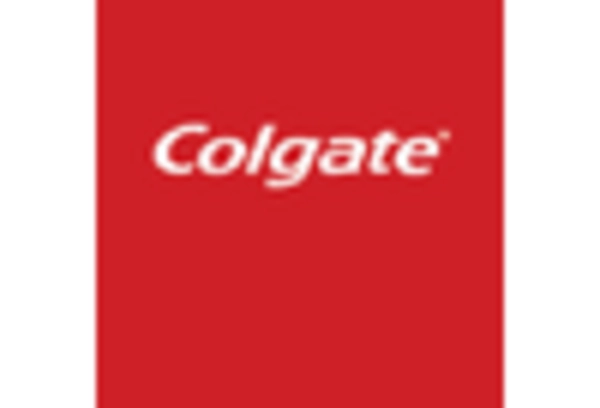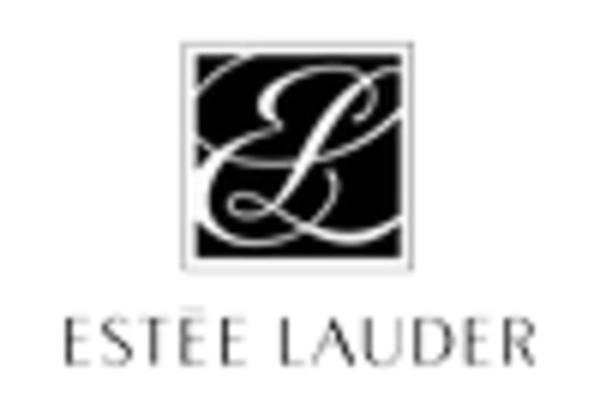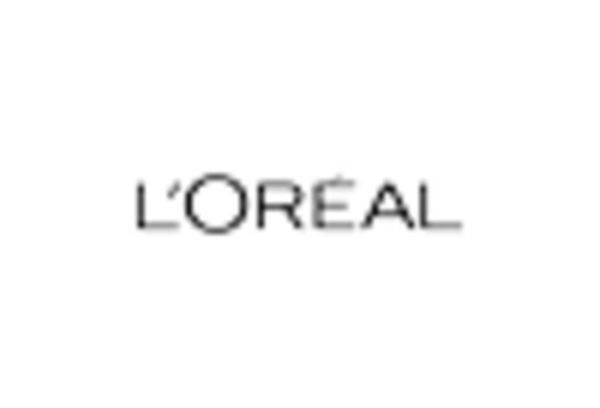Influence of Social Media
The organic personal-care-products market is significantly influenced by social media platforms, where beauty influencers and eco-conscious advocates promote organic and natural products. This digital landscape allows for rapid dissemination of information and trends, leading to increased visibility for brands that align with consumer values. According to recent studies, nearly 70% of consumers report that social media impacts their purchasing decisions, particularly in the beauty sector. As a result, brands are investing in social media marketing strategies to engage with their audience and showcase the benefits of their organic offerings. This trend not only drives sales but also fosters a community of like-minded individuals who prioritize sustainability and health, further propelling the growth of the organic personal-care-products market.
Growing Consumer Awareness
The organic personal-care-products market is experiencing a notable surge in consumer awareness regarding the ingredients used in personal care items. As individuals become increasingly informed about the potential harmful effects of synthetic chemicals, they are gravitating towards products that are perceived as safer and more natural. This shift in consumer behavior is reflected in market data, which indicates that the organic personal-care-products market has seen a growth rate of approximately 10% annually. The demand for transparency in product labeling further fuels this trend, as consumers seek brands that disclose their ingredient sources and manufacturing processes. Consequently, companies in the organic personal-care-products market are adapting their marketing strategies to highlight the purity and safety of their offerings, thereby enhancing consumer trust and loyalty.
Shift Towards Holistic Wellness
The organic personal-care-products market is experiencing a shift towards holistic wellness, as consumers increasingly view personal care as an integral part of their overall health. This perspective encompasses not only the physical aspects of beauty but also mental and emotional well-being. As a result, products that promote self-care and mindfulness are gaining traction. Market data suggests that the demand for organic personal-care products that incorporate therapeutic ingredients, such as essential oils and herbal extracts, is on the rise. This trend reflects a broader societal movement towards wellness, where consumers prioritize products that contribute to their overall quality of life. Consequently, brands in the organic personal-care-products market are adapting their offerings to align with this holistic approach, thereby tapping into a lucrative segment of health-conscious consumers.
Rising Demand for Eco-Friendly Products
The organic personal-care-products market is witnessing a rising demand for eco-friendly products, driven by consumers' growing concern for environmental sustainability. This trend is evident as more individuals seek products that not only benefit their health but also minimize their ecological footprint. Market Research Future indicates that approximately 60% of consumers are willing to pay a premium for products that are environmentally friendly. This shift is prompting brands to innovate and develop formulations that utilize sustainable ingredients and packaging. As a result, the organic personal-care-products market is evolving to meet these expectations, with companies increasingly focusing on reducing waste and utilizing biodegradable materials. This alignment with consumer values is likely to enhance brand loyalty and drive further growth in the market.
Regulatory Support for Organic Standards
The organic personal-care-products market benefits from increasing regulatory support aimed at establishing clear standards for organic labeling. Government agencies are actively working to create guidelines that ensure product integrity and consumer protection. This regulatory framework is crucial for building consumer confidence in organic products, as it helps to differentiate genuine organic offerings from those that may be misleading. The establishment of such standards is likely to enhance market growth, as consumers are more inclined to purchase products that adhere to recognized organic certifications. Furthermore, as the organic personal-care-products market expands, regulatory bodies may introduce additional measures to promote sustainability and ethical sourcing, thereby reinforcing the market's commitment to environmental responsibility.

















